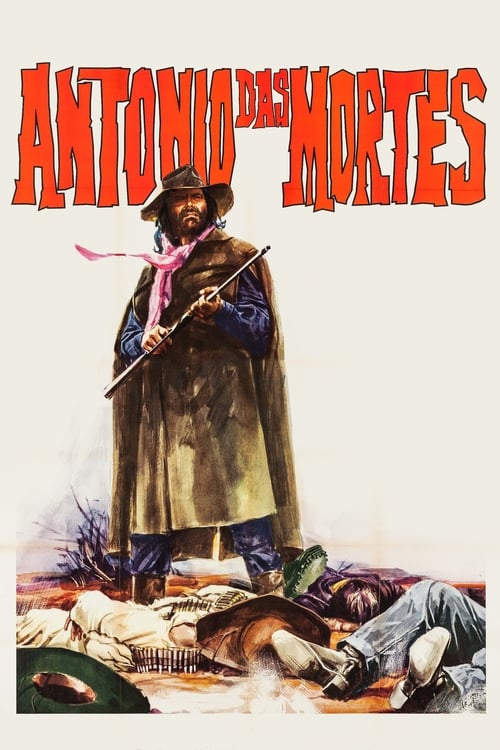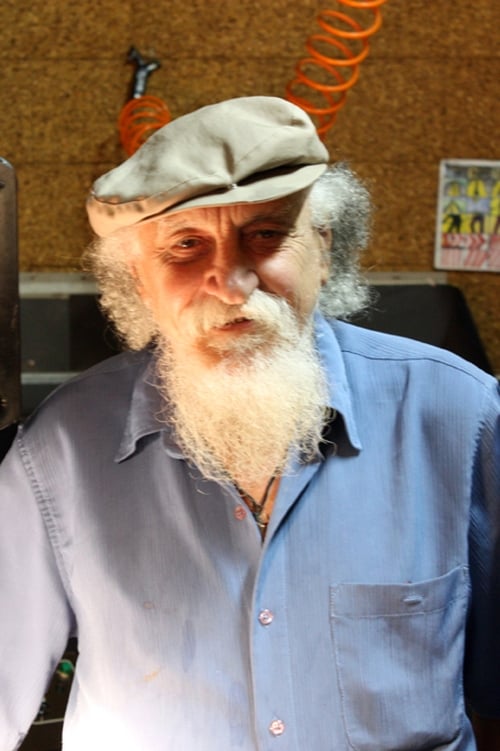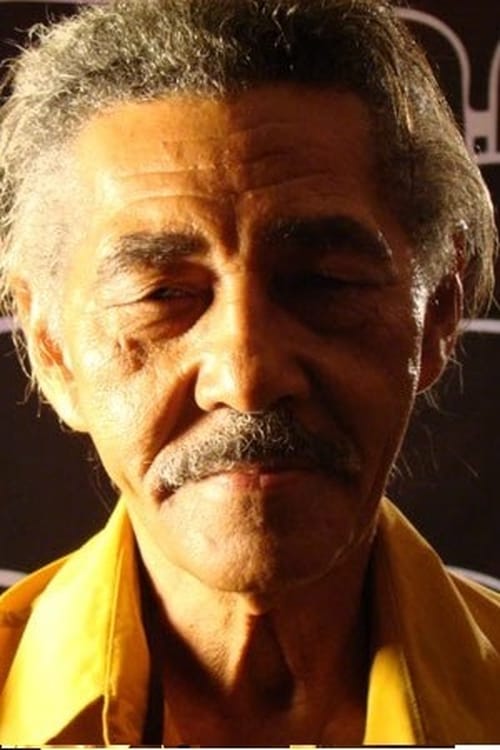Antonio das Mortes (1969)
장르 : 드라마, 액션, 역사
상영시간 : 1시간 40분
연출 : Glauber Rocha
각본 : Glauber Rocha
시놉시스
A new incarnation of Cangaceiro bandits, led by Coirana, has risen in the badlands. A blind landowner hires Antônio to wipe out his old nemesis. Yet after besting Coirana and accompanying the dying man to his mountain hideout, Antônio is moved by the plight of the Cangaceiro’s followers. The troubled hitman turns revolutionary, his gun and machete aimed towards his former masters.

영화는 브라질의 한 감옥 장면에서부터 시작된다. 교도소 생활이 진행되는 가운데 플래쉬백으로 과거 이야기가 전개된다. 무일푼으로 시골에서 대도시로 들어온 노나토는 한 허름한 식당에서 무전취식하다 주인에게 발각되자, 식당 일을 시켜주고 보수 대신 부엌 옆의 조그만 골방에서 숙식을 제공받기로 한다. 무식하고 배운 것은 없었지만 요리에 뛰어난 재능이 있었던 노나토가 주방을 맡은 이후로, 그가 만든 고로케가 선풍적인 인기를 끌어 식당에는 사람들로 붐비게 된다. 그 중 창녀인 이리나는 기가막힌 맛에 홀려 공짜로 먹고 대신 섹스를 제공하는 사이가 된다. 어느 날 손님 중에 유명한 이태리 식당 보카치오의 주인이 우연히 그 맛을 보게 되고 노나타를 스카우트하기에 이르는데...
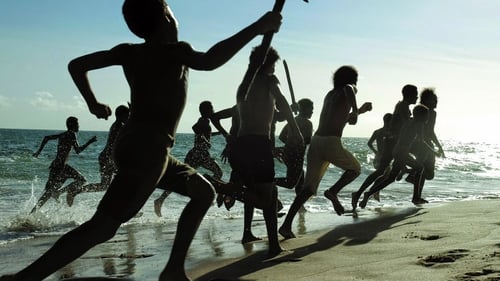
About the life and adventures of a gang of abandoned street kids known as "Capitães da Areia" (Captains of the Sands), in Salvador, Bahia, during the 1950s.

Man finds a job as a dog catcher, but feels sorry for the animals and sets them free.
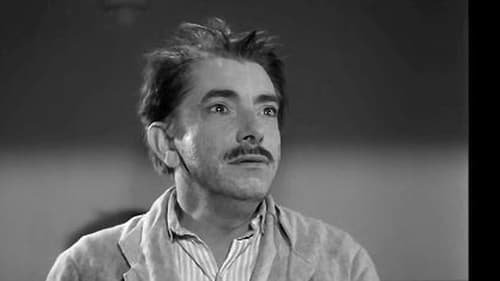
It is the story of Pedro, who after being passed over by his brothers, wanders the world in search of a better life, but on the way, finds children who eventually conquer it, and in order to help them, he passes scamming other people he met along the way, telling lies, however, always with the goal of helping him new friends. And kills a cow.

Hello, Hello, Terezinha! is a feature-length documentary about the country's biggest communication phenomenon. Politically incorrect, radical, renewing, Chacrinha changed Brazilian television forever and expressed a Brazil that was around it, but was not perceived. The film tells the great adventure of Abelardo Barbosa through the eyes of the presenter. It gathers the nuclei of its constellation - chacretes, fledglings and artists who passed through its programs - to identify their individualities and their emotions.

Paco and Tonho are illegal Brazilian immigrants in New York. Shy Tonho dreams of being successful, but misses his family and Brazil. Pursued by Immigration Service and later arrested, he is about to be deported. Paco, a rapper and performer, indifferent to all except her career, dreams of hitting the top ten chart. The film shows the relationship of the couple in love mid hope, difficulties, and misencounters in a beautiful and violent metropolis

Rio de Janeiro. September, 2008. Three men stalk the gloomy back-alleys of the city's notorious slums. Spiderman, a 28-year-old drug lord, embarks on a routine patrol through the shadowy streets of Coréia, the sprawling slum he controls. Inspector Leonardo Torres, a muscle-bound operative from Rio's drug squad, inches through the alleys of another shantytown, shots ringing out around him. And Pastor Dione, an evangelical preacher intent on ending Rio's drug conflict, trawls the slums for lost souls. With unprecedented access to some of Rio's most wanted men, Dancing with the Devil in the City of God tells the story of Rio's drug war through the eyes of three men locked into one of the bloodiest urban conflicts on earth. Written by Jon Blair and Tom Phillips

José Henrique Fonseca crafts an ambitious and long overdue homage to a central icon in Brazil’s 20th century history. Reminiscent of film noir classics, the biopic tells the glorious and tragic story of the legendary football striker Heleno de Freitas. The sumptuous black and white cinematography reflects the chic life of Rio de Janeiro in the 1940s as it fell under the spell of sports royalty. Heleno was no doubt one of the most popular players of his time for his bravura in the field and magnificent goal-scoring that lead the Botafogo team to the top and himself into a vicious downward spiral.

Life in a middle-class neighbourhood in present day Recife, Brazil, takes an unexpected turn after the arrival of an independent private security firm. The presence of these men brings a sense of safety and a good deal of anxiety to a culture which runs on fear. Meanwhile, Bia, married and mother of two, must find a way to deal with the constant barking and howling of her neighbour’s dog. A slice of ‘Braziliana’, a reflection on history, violence and noise.

Brazil, 1594. The Tupinambás natives are friends of the French and their enemies are the Tupiniquins, friends of the Portuguese. A Frenchman is captured by the Tupinambás, and in spite of his trial to convince them that he is French, they believe he is Portuguese. The Frenchman becomes their slave, and maritally lives with Seboipepe.
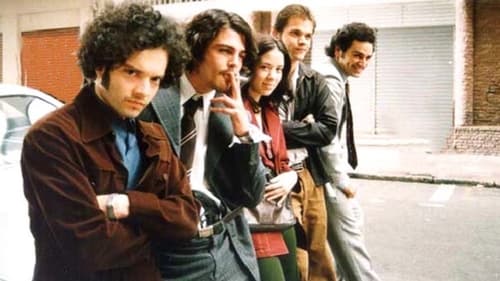
Brazil in the early 70s. Miguel, Eloi, Osvaldo and Paolo take part in armed attacks against the military dictatorship. They pay a heavy price with torture and arrest. Today the four friends still see each other. Only Miguel is politically active. On a photograph from a political meeting in Sao Paolo he recognises the policeman who tortured them 25 years ago and who was responsible for the death of Miguel's girlfriend. The policeman has been officially dead for a few years. On one of their fishing trips together, Miguel tells his friends of his discovery. When they hunt down and confront their nemesis they come into conflict with both themselves and each other.

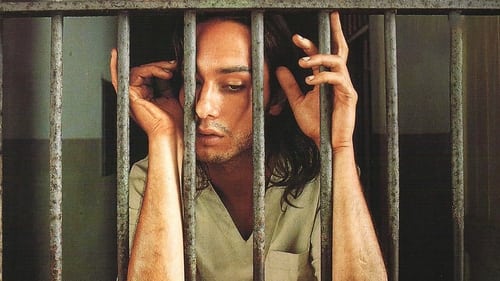
A trip to the mental institution hell. This odyssey is lived by Neto, a middle class teenager, who lives a normal life until his father sends him to a mental institution after finding drugs on his pocket. The maconha cigarrete is just the final drop that exposes the family tragedy. Send to a mental institution, Neto gets to know a completely absurd, inhumane reality in which the people are devoured by a corrupt and cruel institution system. The documentary type language used by the director give this movie a sensation of realty that increases even more the impact of the emotions Neto goes through. In the mental institution, Neto is forced to mature. The transformations that he goes through change this relations with his father.

Born a fully grown black man in a village in the Brazilian jungle, Macunaíma later magically transforms into a white man before making an adventure-filled trip to the city of São Paulo. Once there, he becomes something of a dandy, falling in love with Ci, a revolutionary who dies in an accidental bombing. After robbing a ruthless industrialist, Macunaima returns to his village where he finds his newly acquired knowledge and possessions of little use.

Wanted for killing his boss, Manuel flees with his wife Rosa to the sertão, the barren landscape of Northern Brazil. Thrust into a primordial violent region, Manuel and Rosa come under the influence and control of a series of frightening figures.
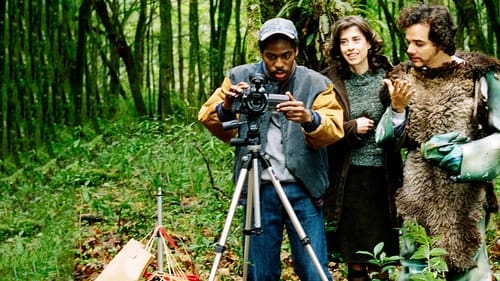
When they discover their town lacks funding for a sewage system, but does have a federal grant to make a movie, a group of villagers decide to make a sci-fi joint about a monster who lives in the building site of a septic tank.
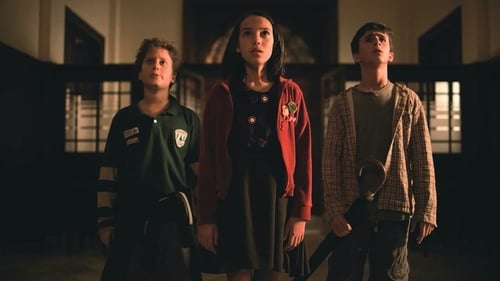
Eugênio (Lucas Cotrim) é um garoto de 11 anos que jamais se separa do guarda chuva herdado de seu avô. No último dia de férias ele e Cebola (Victor Froiman), seu melhor amigo, precisam entrar na sombria casa onde fica sua nova escola. O motivo é para resgatar Frida (Rafaela Victor), a grande paixão de Eugênio, que foi sequestrada pelo fantasma do Barão Von Staffen (Daniel Dantas)

Alice is a thirty-something woman married to João, has a son and is very successful professionally. Alice is the typical workaholic, whose work is her largest and only pleasure. On the other hand her personal life does not exist: no sexual activity, zero libido, zero personal life. The lack of a sex life in Alice's life is overflowing in Marcela's, her stunning neighbor. A true expert on the subject, Marcela is the owner of a sex shop and knows everything when the theme is the search for pleasure. Like in the typical comedy of errors, the lives of Alice and Marcela will cross and both will undergo huge transformations after this encounter.

Inspired by the moving book “Só as Mães São Felizes”, by Lucinha Araújo, Cazuza's mother, the film covers a little more than 10 years of the singer’s crazy and brief life – from the beginning of his career in the Circo Voador venue, in 1981, to the huge success and the apotheosis of his shows with the Barão Vermelho band, his solo career, his relations with his parents, friends, lovers and passions, and the courage he had to face his final years, with HIV, until his death, in 1990.

After studying in the capital, the young Cate, 18, returns to her small town in Minas Gerais, to teach in elementary school. Enthusiastic, free and communicative, she conquers the students in the act, but its leading behavior does not appeal to conservative teachers of the 40s. Every day she brings new ideas. While they discover the pleasure of learning, the school friends also have the first lessons about love, friendship and freedom. And the schoolmistress not only winning students: the most beautiful boys in town fall in love with her. Created by Tia Cida and niece of Bishop Aristides, Cate grew up with his uncle's godson, Beto, who became a priest and return to the city after studying outside.

Leader of the student union, Saulo is the target of racist curses inside the classroom. When he retaliates, he is called to the principal's office, but refuses to suffer the consequences of the attack alone, since the aggressor is not responsible for his speech. Inspired by readings about the Black Panthers, the boy decides to stay in school until justice is done. Meanwhile, he exposes the neglect of the establishment's structure with his cell phone. Gradually, colleagues, teachers, directors and even politicians get involved in the conflict that is highlighted in the media.

Wanted for killing his boss, Manuel flees with his wife Rosa to the sertão, the barren landscape of Northern Brazil. Thrust into a primordial violent region, Manuel and Rosa come under the influence and control of a series of frightening figures.

Life in a middle-class neighbourhood in present day Recife, Brazil, takes an unexpected turn after the arrival of an independent private security firm. The presence of these men brings a sense of safety and a good deal of anxiety to a culture which runs on fear. Meanwhile, Bia, married and mother of two, must find a way to deal with the constant barking and howling of her neighbour’s dog. A slice of ‘Braziliana’, a reflection on history, violence and noise.
